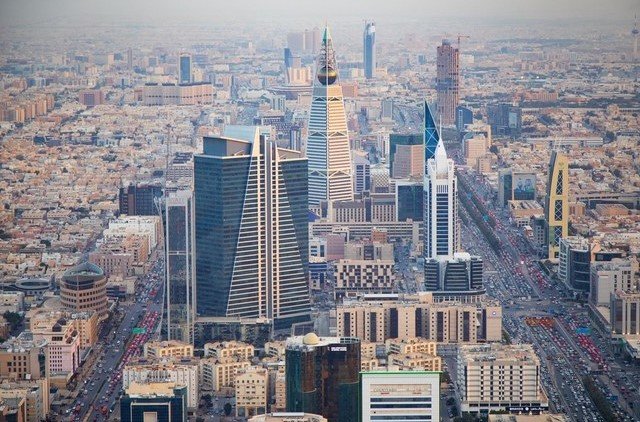Saudi Arabia has taken a big swing at rewriting its real estate playbook—foreigners can now officially own property across the Kingdom. The decision, dropped by the Council of Ministers this week, is being pitched as a cornerstone reform under Crown Prince Mohammed bin Salman’s Vision 2030 plan. The move could redraw urban skylines, upend housing prices, and turn Riyadh into a more global real estate playground.
It’s a radical shift in a country that, until now, kept its property markets gated to outsiders. And it’s happening fast.
A First for Foreign Ownership, and It’s a Big One
For decades, real estate ownership in Saudi Arabia was tightly restricted. Expats, foreign companies, and outside developers had little to no legal access to the residential or commercial property markets.
Not anymore.
The new law makes it clear: foreigners—individuals and companies—can own property in every part of the Kingdom, including the highly coveted city centers of Riyadh, Jeddah, and Dammam.
The announcement came during Tuesday’s Council of Ministers meeting, sending shockwaves across the local business and construction sectors. Municipal and Rural Affairs and Housing Minister Majid Al-Hogail confirmed that the law wasn’t just symbolic. “It’s a structural move that will stimulate supply, improve quality, and directly support the country’s economic transformation,” he said.
That economic transformation? It’s Vision 2030—the all-encompassing initiative designed to pivot the Kingdom away from oil dependence.

Eyes on Riyadh, but Implications Go Deeper
Riyadh’s sleek skyline, already speckled with cranes and luxury towers, is expected to see a boost in demand. Developers are watching closely, but so are families priced out of certain areas.
The policy’s rollout will be phased, but it’s already lifting restrictions in:
-
Central business districts and urban masterplans in Riyadh, Jeddah, and Dammam
-
Special economic zones like NEOM and the Red Sea Project
-
Secondary cities like Abha, Tabuk, and Hail where local markets remain underdeveloped
But the big question is: will this bring prices down—or push them further up?
What the Policy Means on the Ground
On paper, the change aims to bring more capital into housing and infrastructure. In practice, it could reshape how Saudi citizens and foreign investors interact in the property market.
Real estate analyst Khalid Al-Jasser, CEO of Amaken Group, said the law is a “balancing act.” He stressed the Kingdom is not giving the green light for unregulated speculation. Instead, the rules are being paired with regulatory mechanisms to prevent bubble risks and keep housing affordable.
The Ministry is expected to roll out detailed frameworks in the coming weeks. Some initial expectations include:
-
Zoning restrictions to limit overcrowding
-
Citizenship-based purchase caps to avoid hyper-concentration
-
Local partnerships for large-scale developments
“It’s not going to be a free-for-all,” Al-Jasser said. “But it’s a massive invitation.”
Foreign Developers Already Sniffing Around
With legal clarity now in place, major property players from the UAE, Turkey, India, and the UK are likely to move in. Industry chatter suggests Dubai-based DAMAC and India’s Prestige Group are already eyeing land acquisitions.
According to the Saudi Contractors Authority, foreign direct investment in construction rose 31% year-over-year in 2024. That number is now expected to spike.
Here’s what some of the first-mover interest might look like:
| Developer Name | Country of Origin | Type of Project | Expected Launch |
|---|---|---|---|
| DAMAC Properties | UAE | Mixed-use Residential | Q4 2025 |
| Emaar International | UAE | Retail + Hospitality | Q1 2026 |
| Prestige Estates | India | Mid-tier Housing | Mid-2026 |
| Berkeley Group | UK | Green-certified Housing | Early 2027 |
This table reflects early stage plans and rumors being circulated among Gulf-based investment circles.
The Vision 2030 Angle: It’s About More Than Homes
Sure, property ownership is the headline. But the policy is really about something bigger: jobs, infrastructure, and modern cities.
The Ministry says the new wave of foreign investment will help:
-
Improve housing standards across middle and low-income brackets
-
Generate thousands of new construction and service sector jobs
-
Push municipalities to upgrade public transport and basic utilities
Saudi Arabia aims to raise home ownership rates among its citizens from 60% to 70% by 2030. That’s ambitious, and officials believe foreign capital can help bridge the infrastructure gaps, especially in newly urbanizing districts.
Cautious Optimism—and a Bit of Pushback
Not everyone’s celebrating.
Some local developers, especially those focused on mid-income housing, fear the influx of foreign players will skew the market toward luxury real estate. Others worry land prices may spike in core areas before the benefits of supply expansion kick in.
Still, the tone in official circles is confident. Minister Al-Hogail reassured citizens that regulations would evolve in real-time. “This is about balance. About competition. And most importantly, about delivering better homes and better cities,” he said.
More Questions Than Answers, But Change Is Coming
For now, buyers and brokers are still waiting on the fine print. How many properties can a foreigner own? Will some areas remain off-limits? Will there be extra taxes or residency perks?
Nobody’s got the full answers yet. But the market is already moving.
As of Thursday morning, some Riyadh-based agencies reported a spike in inquiries from non-Gulf buyers—especially from Europe and South Asia. Real estate firms are holding emergency briefings. Everyone wants to know the same thing:
